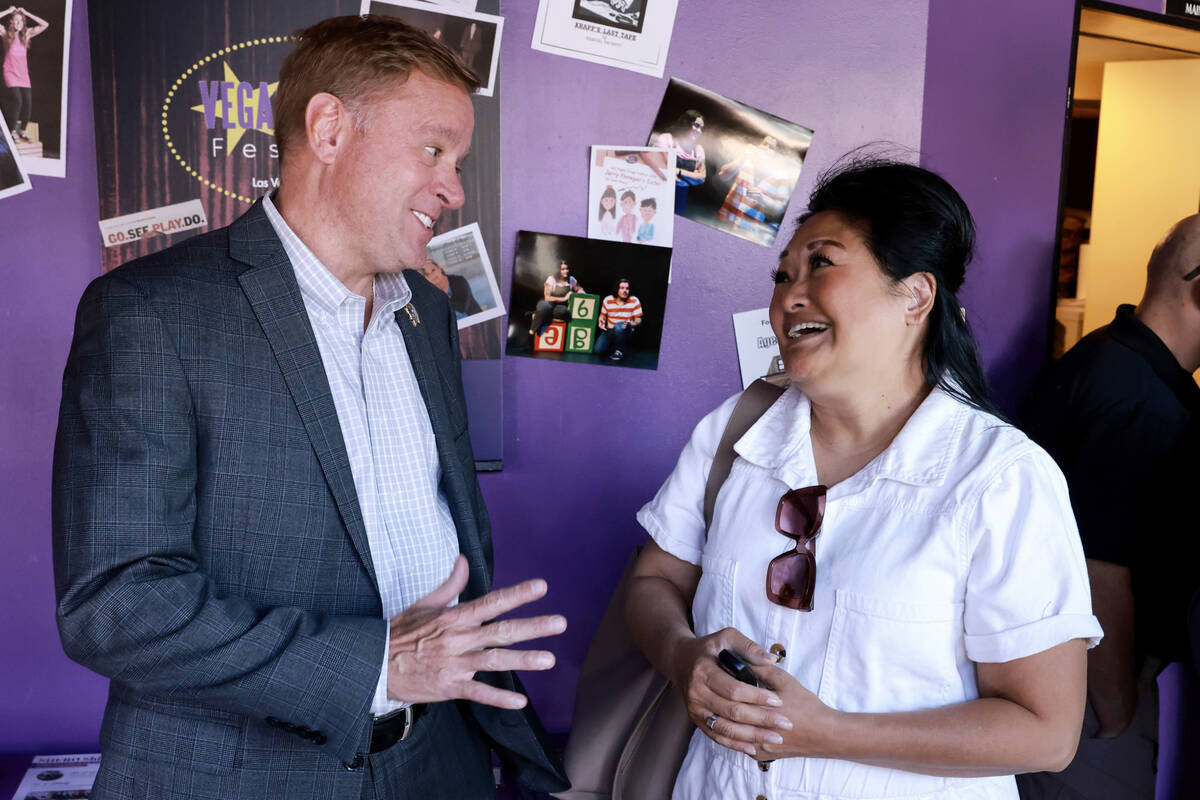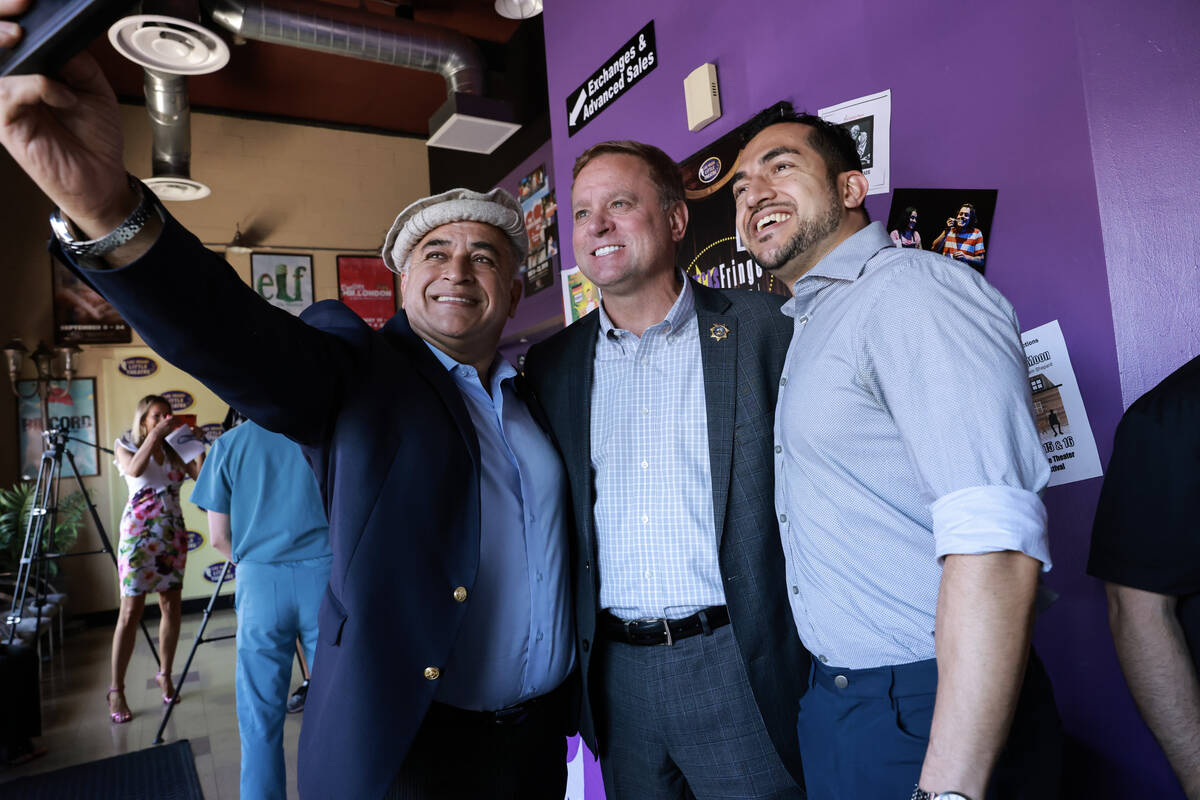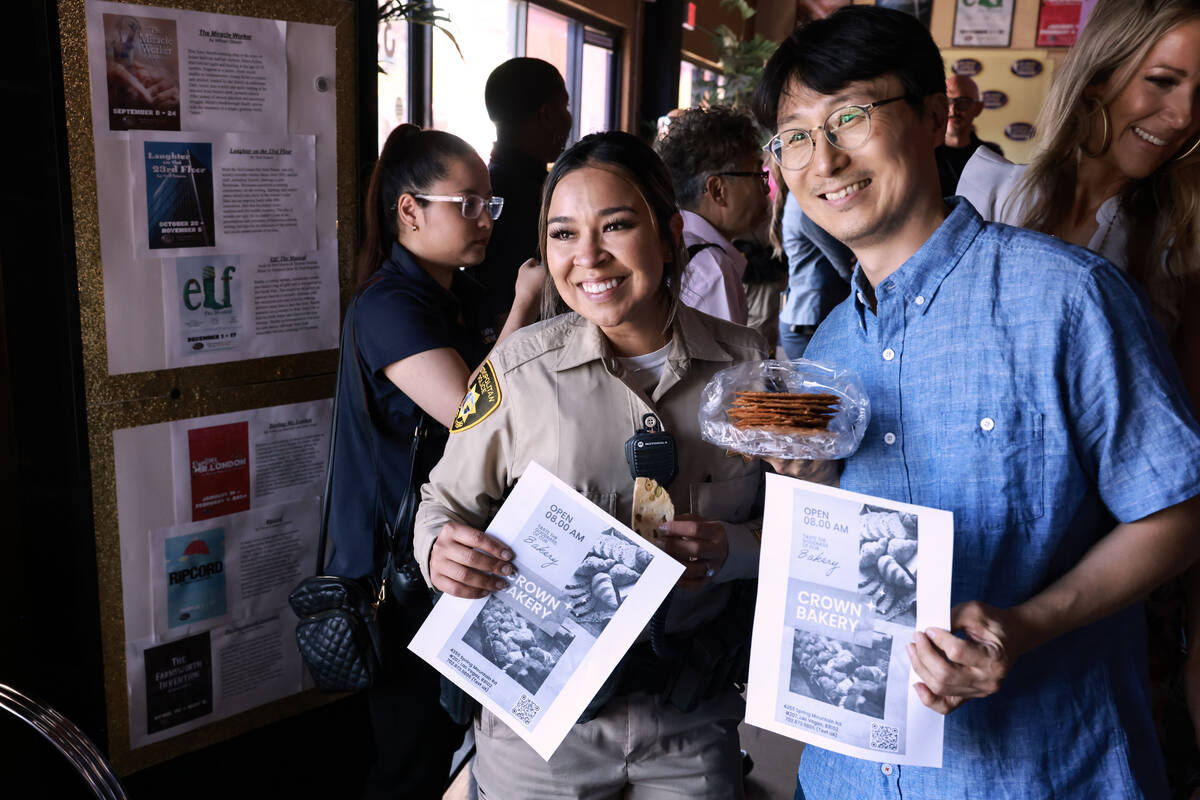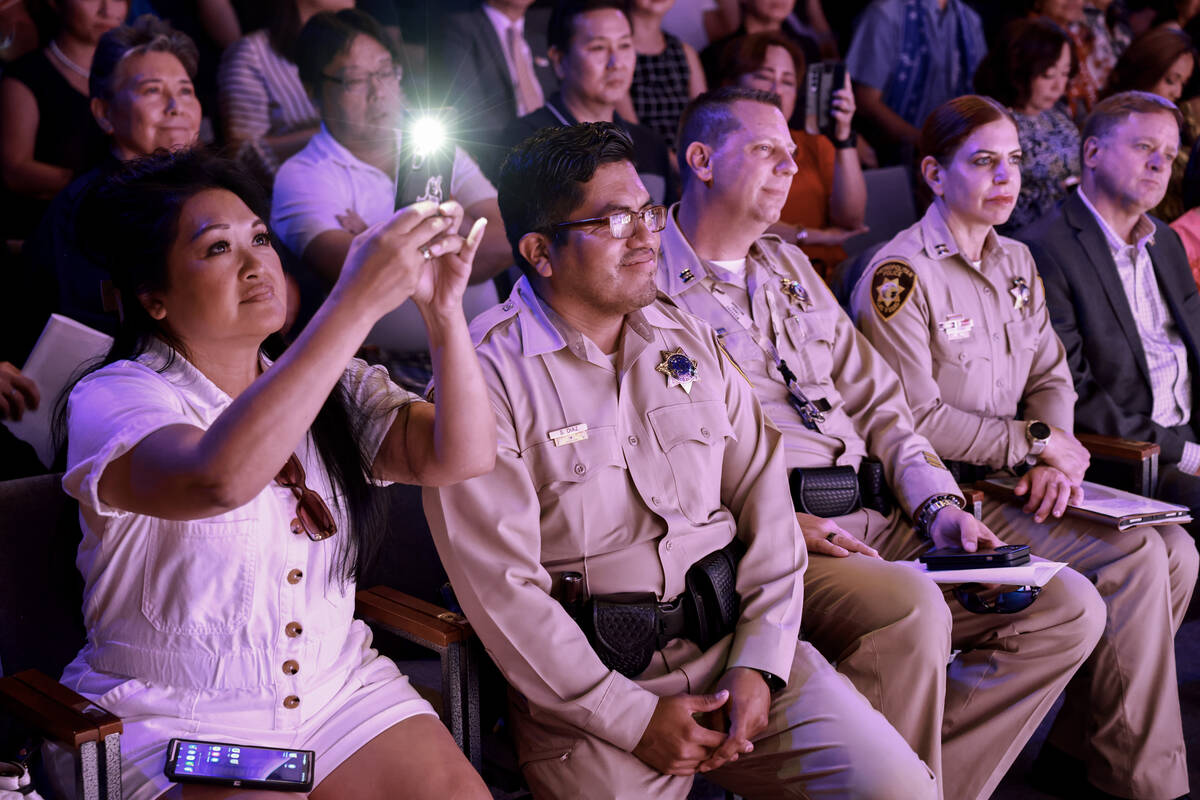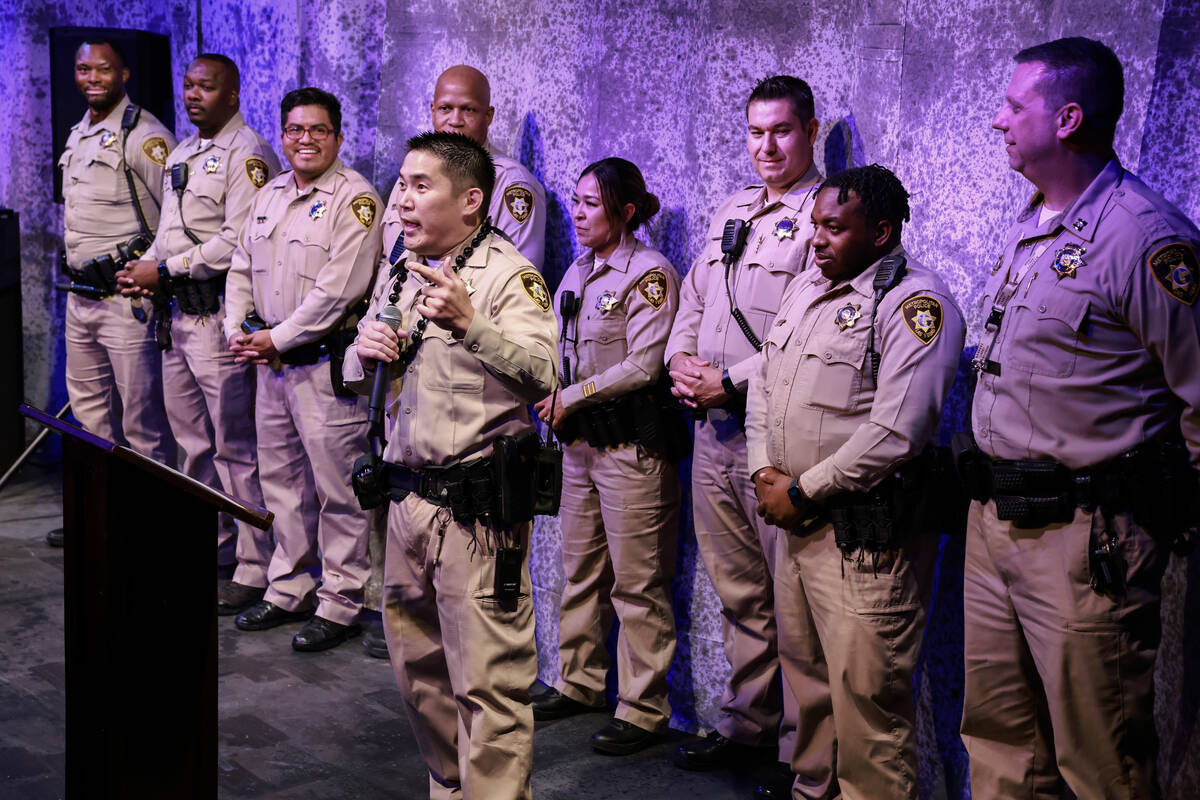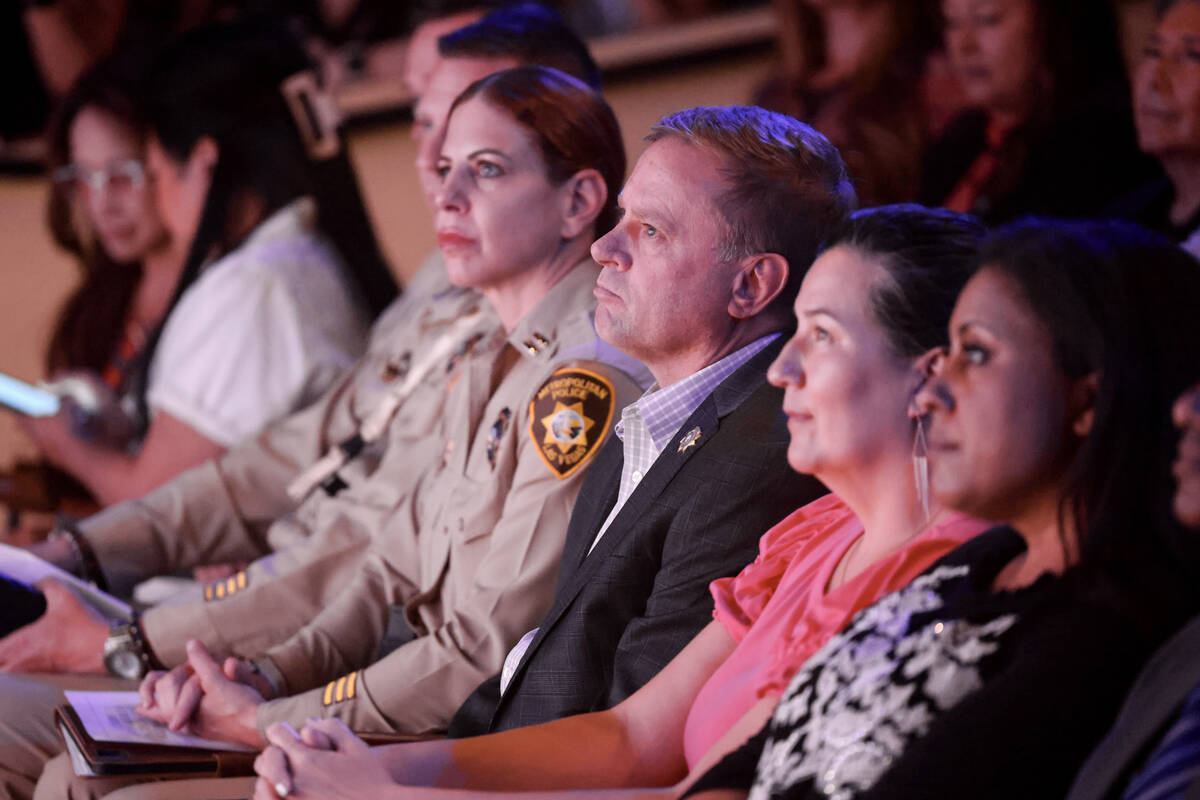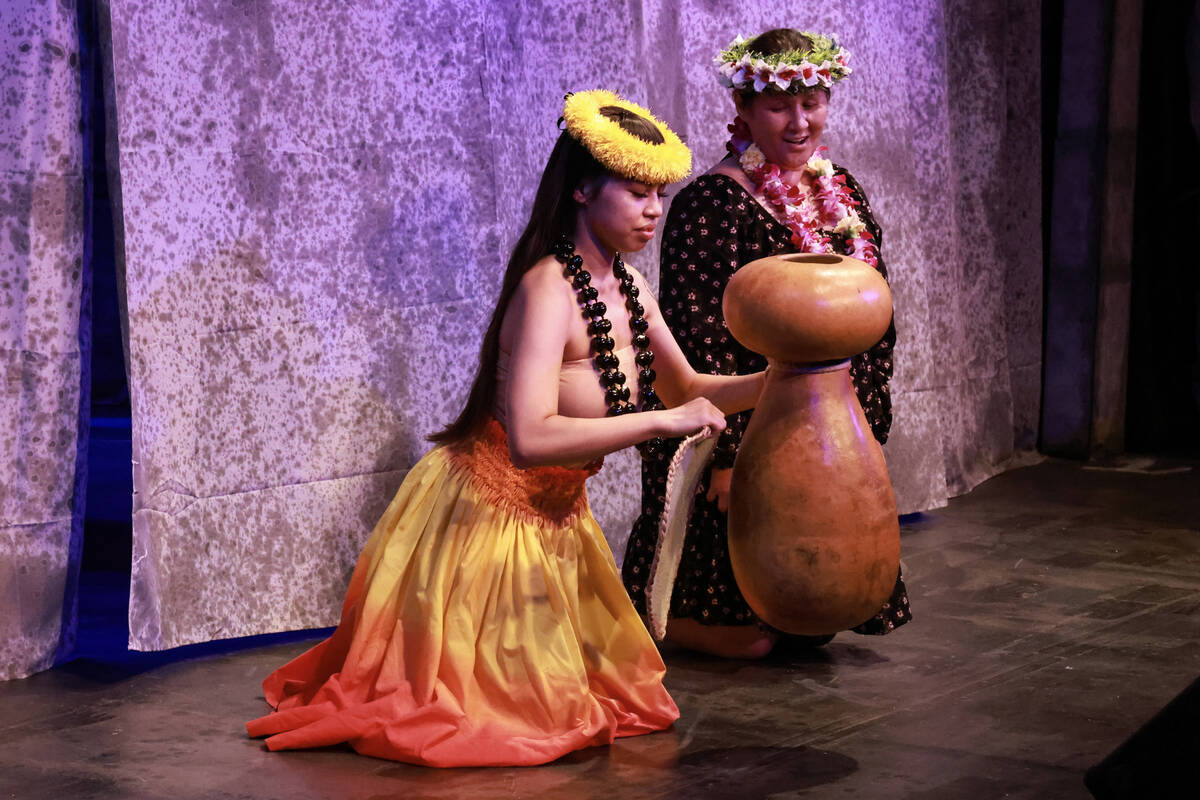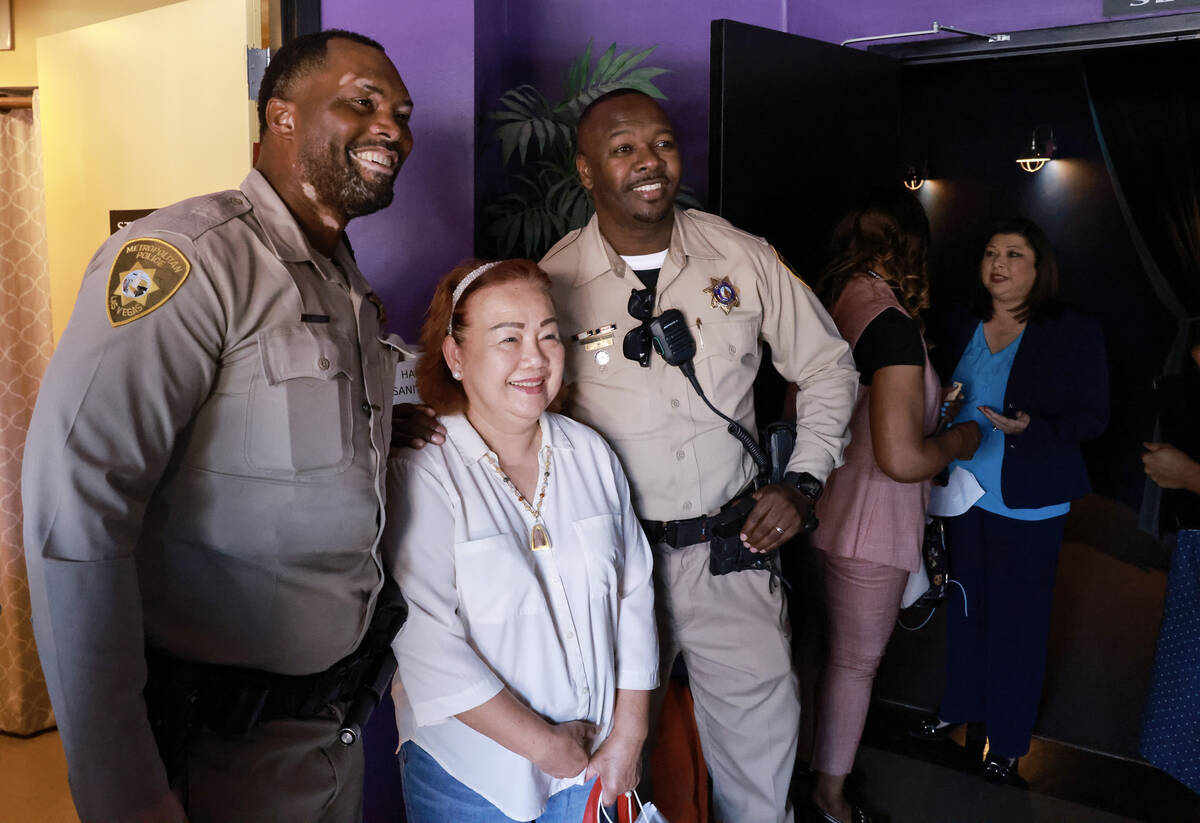‘The future of policing’: Metro launches Asian American Pacific Islander Alliance
From the stage of the Las Vegas Little Theater, Metropolitan Police Department Sheriff Kevin McMahill told a packed audience on Thursday that the department has “alienated” many members of the Asian American and Pacific Islander communities over the years.
When he took over the job of sheriff, he said, he realized that there are “so many different communities that still don’t feel like they’re a part, or in touch with, the police department.”
This realization was part of the impetus for community members, elected officials and police officers to gather Thursday for the inaugural meeting of Metro’s new Asian American Pacific Islander Alliance.
The third alliance of its kind after Metro’s Hispanic Alliance and Black Community Alliance, it is scheduled to meet every two months to explore issues facing the Asian American and Pacific Islander communities throughout Las Vegas.
“It’s a first meeting, so I’m kind of curious to see what they have in mind,” said Divya Narala, a 35-year-old director of partnerships and engagement at Nevada Grant Lab.
Once the crowd had filtered into the theater, the audience was met with speeches by Metro officers and performances of Hula Halau, a Hawai’ian dance, and Haka, a Māori custom.
One Las Vegas
“The primary purpose for why we have established our AAPI alliance is because I need you,” said Rachel Skidmore, director of community engagement at Metro.
“I need you as one Las Vegas,” she said. “One thing is true. We cannot, as LVMPD, arrest our way out of the problems that we face.” Instead, Skidmore hopes to foster collaboration.
She shared some statistics with the audience about hate crimes targeting the Asian American and Pacific Islander community. Metro found 20 documented cases in the last four years, Skidmore said, adding most victims did not know the person who committed the crime.
“The data points provided were very eye opening,” said Jennifer Calimbahin, community engagement coordinator for the Clark County School District. Calling the inaugural meeting a “good start,” she said the data provided gives her something to share with students and fellow teachers.
Speaking with many voices
While many diverse communities are represented in the alliance, McMahill said that in the past, Metro has “tended to clump groups of people together that may not belong together.”
To reduce fear among communities, Metro programming can’t be the same across the board, he said.
For instance, McMahill said that Metro has no specific programming for more than 200,000 Filipinos living in Las Vegas. This is the city’s largest group of people within the Asian American Pacific Islander community.
“Asian people don’t always speak with one voice,” said Las Vegas Councilwoman Francis Allen-Palenske, the first Asian American to be elected to the council.
“Having every one of those sub denominations have a relationship with Metro is a beautiful thing,” she said. “Communication breeds dialogue, breeds change.”
Community policing
McMahill argued many police departments across the nation that say they engage in community policing, a strategy relying on close community relationships, do not live up to this claim.
And as for Metro, there is “far more to do,” he said. Captain Katie Geiger of the Spring Valley area command, which includes Chinatown and the Spring Mountain Corridor, introduced a team of two officers hoping to do just that.
Officers Micah Belmores and Kirt “Ike” Vesperas have been assigned to serve the Asian American Pacific Islander community in the Spring Valley area as “neighborhood officers,” Geiger said.
She referred to citizens as Metro’s “customers.” Hearing that word, Jason Guerpo, a 39-year-old break-dancer from Hawaii, said, “it’s incredible — when I grew up, we never had that resource.”
The two new officers, Asian American themselves and affectionately coined “Mike and Ike,” are poised to serve as a resource to combat a disconnect between citizens and police, which McMahill said can lead to issues like the underreporting of hate crimes.
“This is the future of policing,” he said.
Contact Estelle Atkinson at eatkinson@reviewjournal.com.



